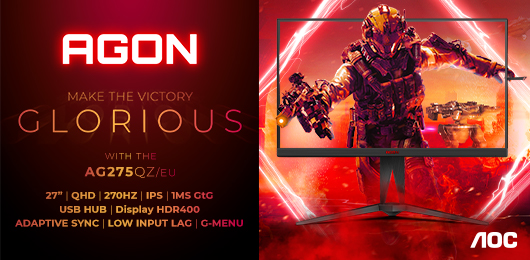Online gambling has become increasingly popular over the past few decades. The industry has constantly been evolving and adapting new technologies, opening up opportunities for providers to enhance their games. These developments have changed how people gamble online occasionally and provide an engaging experience. As a result, gaming has become more accessible and user-friendly for New Zealanders than ever. Hence, operators need to use innovations to stay ahead of the competition. This has led to increased engagement and revenue for the industry. In this article, you will get to know how new technologies positively revolutionize online gambling.
Mobile gaming
This refers to playing games on smartphones, tablets, and other portable devices. Rapid technological advancements have made mobile gaming increasingly popular over the past decade. Many traditional casino and video games on consoles or PCs have been adapted to mobile platforms. This made it a significant part of the gaming industry, with many games available for download on app stores. The rise of this technology has also led to the development of new business models. This includes free-to-play games with in-app purchases or subscriptions. Mobile gaming has improved online gambling in several ways, including:
Accessibility and Convenience Mobile gaming has made it easier for New Zealanders to access their favorite $1 deposit casino or sports betting markets. Players can simply log in to their accounts from their devices without being tied to a desktop computer. Some gaming brands’ apps you can use include:
- 888 Casino: This operator has a downloadable app and a mobile-optimized site for iOS and Android devices. It offers a selection of games from top providers like NetEnt, Evolution Gaming, and Yggdrasil.
- Betway Casino: It has a mobile-optimized site that can be accessed through any smartphone. The platform offers titles from top providers like Microgaming, NetEnt, and Evolution Gaming.
- LeoVegas: This casino has a mobile app for iOS and Android devices. It offers games from top providers like NetEnt, Microgaming, and Play’n GO.
Better user experience Mobile apps are designed to be user-friendly and optimized for smaller screens. This has led to a better user experience for Kiwis, making navigating games and placing bets easier. It enables customizable controls and accessibility options, like high-contrast modes and support for haptic feedback. They make gambling easier for people with mobility or visual impairments.
Variety of Games They often have unique gameplay mechanics well-suited to the touchscreen controls. This has allowed the creation of new types of games that were impossible on traditional gaming platforms. For example, titles that require players to swipe, tap, or tilt their devices to control the game have become popular. This has led to a more diverse and engaging online gambling experience for players. Some outstanding software providers driving the growth of mobile gaming are:
- Playtech: It offers a variety of titles, including Age of the Gods, Buffalo Blitz, and Gladiator.
- NetEnt: This is another famous software provider offering games like Starburst, Gonzo’s Quest, and Dead or Alive.
- Microgaming: This popular provider of mobile casino games offers a wide range of slot machines, table games, and live dealer games. Some of its most played slots include Mega Moolah, Thunderstruck II, and Immortal Romance.
Social Gaming This online or mobile game emphasizes interaction and community building among players. They often use features such as chat rooms, forums, leaderboards, and virtual goods. Some involve cooperative or competitive gameplay, where players work together to achieve a common goal. They may also compete against each other for rewards or recognition. The social element of these games regularly involves communication and interaction with other players, whether through voice or text chat.
Live betting With real-time odds updates and fast staking options, players can place bets on sporting events as they happen. This provides an exciting and immersive experience.
VR
Virtual Reality is a computer-generated simulation of a three-dimensional environment. It can be interacted with using specialized headsets, gloves, and motion sensors. VR is advancing through the development of powerful computing hardware and software. It has revolutionized online gambling by creating a more immersive experience for Kiwis. VR-slots are a perfect example of how this technology can improve online gaming. They offer a more realistic experience than traditional online slots by simulating the anticipation of spinning the reels on a physical slot machine. Here are some ways in which VR has made a positive impact on the online gambling industry:
Enhanced Gaming Experience VR simulates a land-based casino with realistic graphics, sounds, and physical sensations. It provides a 360-degree view of the virtual environment. This means you can see everything happening in the virtual casino, including other players and dealers, from any angle. VR helps to create a more authentic experience that mimics the feeling of being in a real casino. It can be particularly appealing to those who enjoy the social aspect of gambling. This gives players a more interactive and engaging experience, leading to higher retention rates. It is one of the ways for New Zealanders to continue playing as part of the game.
Improved Social Interaction VR creates a more engaging atmosphere and can enhance the gaming experience. You can chat, make new friends, and participate in friendly competitions. Dealers can also interact with players and provide a more personalized experience.
Artificial Intelligence
This is the simulation of human intelligence processes by machines, especially computer systems. AI can be designed to perform tasks like learning, problem-solving, decision-making, perception, and language processing. Machine learning algorithms are used in learning from data and improving their performance over time. The following are some ways artificial intelligence is used in online gambling.
Personalization AI creates personalized gaming experiences by analyzing player data and tailoring the gameplay to individual preferences. For example, it analyzes players’ behavior, such as their preferred game type, play style, and betting patterns. This provides customized recommendations for games, bonuses, and promotions. AI helps gaming companies to identify potential problem gamblers. It is achieved by analyzing player behavior and identifying patterns of excessive gambling. This enables the game providers to intervene before the problem gambler reaches a critical point and offer support and resources to help them manage their gambling behaviors.
Fraud Detection It detects and averts online gaming fraud by analyzing player data and detecting suspicious behavior. This can include identifying those who may be colluding or cheating. It detects fraudulent activity such as money laundering and chargebacks.
Predictive Analytics It analyzes the gambler data to predict future trends and behaviors. This can help online gaming companies to optimize their marketing strategies, improve player retention, and increase revenue by offering tailored promotions and bonuses.
Customer Service AI chatbot provides more efficient and effective support for New Zealanders. It automates tasks like answering FAQs and resolving simple issues. This frees human customer service representatives to focus on more complex inquiries. Hence, AI improves overall player satisfaction.
Live dealer games
These are a relatively new development in the world of online gambling. They offer more realistic and immersive gaming by using live-streaming video technology to bring the casino experience home. You can interact with a real-life dealer in a physical casino or studio. The dealer manages the game, deals cards, or spins the roulette wheel and communicates with players via a live video stream. You can see the dealer and the game in real time through a computer or mobile device. You can place bets using a virtual interface. Live dealer games are available in varieties, including blackjack, roulette, baccarat, and poker. In some cases, players can also interact with each other during the game using a chat function. The following are some ways this technology helps improve the gambling industry.
Realistic Gaming Experience It provides a more casino-like feel where you can interact with a live dealer in real time. This appeals to those who prefer the social aspect of brick-and-mortar casinos while also offering the convenience of playing from home.
Increased Transparency The games are more transparent than traditional online casino models. You can see the dealer and the cards being dealt with in real-time. This eliminates doubts or suspicions about the fairness of the game. The increased transparency has improved the trust and confidence of players in online gambling platforms. Hence, leading to increased participation and revenue.
Variety of Games These technologies offer various replicas of what brick-and-mortar offers, including blackjack, roulette, baccarat, and poker. It also allows players to choose their preferred game and have a more personalized gaming experience. This appeals to a wider range of players and increases the platforms’ revenue. It has also attracted newbies looking for more gaming options than traditional online casino games.
Cybersecurity
This is a critical concern in today’s interconnected world, where cyber threats are increasingly common. As online gambling becomes more reliant on technology, the risk of cyberattacks and data breaches has increased. Hence, cybersecurity is needed to protect personal and business assets. It improves the trust and confidence of players in gaming platforms. This results in increased participation and revenue for the industry. The following is how it contributed to the growth of online gambling.
SSL Encryption Secure Sockets Layer is a standard security protocol. It establishes an encrypted link between a web server and a browser. Thanks to SSL, all the information transmitted between the player’s browser and the online gambling website is secure and cannot be intercepted by unauthorized parties. The encryption protects players’ data. This includes: login credentials, payment details, other sensitive details.
Two-Factor Authentication 2FA is an extra layer of security that requires users to provide two forms of identification to access their gambling site. This includes a password and a code sent to their mobile phone. Cybersecurity prevents unauthorized access to your account, even if your details are compromised.
Verification Cybersecurity enables online gambling platforms to use various methods to ensure that players are who they claim to be. This can include verifying players: identities through their government-issued ID or passport; addresses using utility bills; payment information via their credit or debit card data.
Digital payments & blockchain
These technologies have revolutionized the online gambling industry. It provides players with a more convenient way to deposit and withdraw funds. New Zealanders now have the option of choosing a method that suits them. They can use online services allowing users to store their payment information and transact gambling. This includes PayPal, Skrill, EcoPayz, etc.
Prepaid cards are prevalent among those who do not have access to a credit card or prefer not to use it for online gambling. It has been a good way to limit spending, as you can only spend the amount loaded on it. Cryptocurrencies, like Bitcoin and Ethereum, are becoming more popular in online casinos due to their decentralized nature. Here are some ways these technologies have improved online gambling:
Faster Transactions Cryptocurrencies, e-wallets, and prepaid cards offer instant payments. This makes it easier for Kiwis to deposit and withdraw their funds. They enhance the player experience; you can’t wait to start playing and receive your winnings.
More Secure Payments They offer an additional layer of security as they are encrypted to protect players’ data.
Transparency Blockchain technology enhances a decentralized and transparent payment system that is less susceptible to corruption. This allows for more transparency in the transaction process and ensures the fairness of the games. This prevents fraud, money laundering, and other illegal activities in the industry.
Anonymity Cryptocurrencies enhance anonymous gaming, ensuring that players’ identities are protected. It provides security and privacy for Kiwis, as they do not require disclosing personal or financial information. This is especially important for New Zealanders who may not want their betting activities to be public. It also makes online gambling easier in countries where it is not legal.
Reduced Transaction Costs These technologies reduce transaction costs for online gambling companies. They eliminate the need for intermediaries like banks and payment processors, reducing the fees associated with these services.
Conclusion
The online gambling industry has undergone significant growth and transformation in recent years. Most of these changes were triggered by innovations and technological advancements. The internet has paved the way for New Zealanders to access gambling sites in their numbers. However, the introduction of mobile gaming makes it more convenient for Kiwis to gamble on the go. The industry has also seen an increase in the use of artificial intelligence. This personalizes the experience and identifies behavior patterns that could show problem gambling. Game providers seek new ways to improve players’ experience as the industry evolves and becomes more competitive. From live dealers to mobile gaming, the future of online gambling looks promising. It is projected to create a more engaging and realistic player experience and attract newbies to online gambling
















